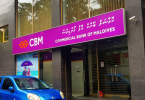The worldwide outbreak of COVID-19 has brought the world to a standstill, and the education sector is no exception among all the major economic sectors. The fact that education no longer yields the same output it used to in a well-facilitated real environment may be the bitter truth we have to face today. The issue has raised concerns for parents caught on opposing sides of the virtual world of education.
Private schools are among the institutions suffering the financial fallout of the pandemic. As a huge percentage of income for a private educational institution comes from fees, the million-dollar question is “Should private school charge fees, regardless of the financial situation of the clients due to COVID-19?”
Islanders Education is one of the companies that operate private schools in the country. Billabong High, Kangaroo Kids and Finland International Schools, run by Islanders, provided online learning continuously since physical schools closed in March this year. Student attendance to the online school programmes at Islanders has been at 94%.
The fees collected by these school are the primary source of funds to operate them. Despite the low collection of school fees due to the pandemic, Islanders has given a discount of 15% on school fees, waived off late payment fines during initial 2 months, and is now offering parents who are severely affected by the pandemic opportunity to pay in instalments as well.
Speaking to Corporate Maldives, Adhly Rasheed, Executive Director of Islanders Education highlighted that the role of a school at a time like this is important for children not only for academics but also for their emotional, social and physical wellbeing.
 Billabong High International School
Billabong High International School
“Every teacher should be remotely connected to their students at a time they are stuck at home,” he said. “The consequences of a nationwide disruption in education results in a loss in learning that is difficult to catch up if we are not very careful with what we do. There will be challenges ahead of us but it is imperative education continues during this crisis and beyond.”
Talking to Corporate Maldives on this topic, the Principle of Bright Way International School, Mohamed Rasheed said, “We can’t just fire the teachers, and omit taking school fees. As long as we have employees, we need to arrange the payrolls at least to some extent as the government does not fund it.”
Rasheed makes a compelling point, as the truth is there are personnel who rely on their monthly payroll for the expenses of the facility and themselves.
“We take fees because we still continue to teach online and assist the students in their studies,” the management of Zhamek Learning Centre responded when asked about the fees. “We have to arrange the teachers’ salary and the rent in the centre too.”
Majority of schools are now continuing to teach with the assistance of digital services.
 Digital Teaching
Digital Teaching
“Yes, we do take classes online, by using Google Meet,” Mohamed Rasheed added. “But we are not following the normal timetable as the duration could end up costing a lot on internet expenses. Parents themselves requested for online classes. We did a survey and it concluded the approval of online teaching by 85% of the parents. No tasks are ever done with the full support of a community so that explains why we might have some parents who are neutral or unsupportive.”
Due to the challenges and the situation, some concession has been given in the way of paying fees, Mohamed Rasheed claims.
“We do provide a discount of 10%,” he said. “This doubles into 20% if a parent has two children attending the school. On the flip side, previously fines are charged 10 days after the fees are due. Now it’s been eased to a month. We do consider the situation and understand the difficulties an individual must be having.”
Another question is whether parents subscribe to pitching in to help. Just a handful, according to Zhamek Learning Centre.
Zhamek Learning Centre is a tuition centre and tutoring facilities do not receive the same support that schools do.
 Brightway International School
Brightway International School
“We get the majority of our support from both parents and students,” an official from the Center said. “In my view, parents become reluctant to pay tuition fees if the lessons are not up to parents’ expectations. Once they see the effort, and the results, spending on tuition doesn’t seem like such a big problem.”
Point to note here is these perceptions are based on the difficulties everyone is having to deal with amid the COVID-19 pandemic. While the perspectives differ significantly from one another, there is a common point which everyone agrees: leniency.
“It is hard to manage the expenses especially since my salary had been reduced,” said a parent when asked about her views on paying the school fees every month. “I have two of my children attending a private school, which means I have to pay double the amount. But it’s a good thing we are provided with exceptions and discounts. Things have become easier due to that.”
While the pandemic is certainly one of the most significant challenges faced by the world in recent times, every encouragement must be given to navigate successfully through this crisis so we can continue to educate our children. Working together, being patient, and acting creatively to meet the basic needs of our students is perhaps the best thing we can do for now.
Full details are available at the link below:







